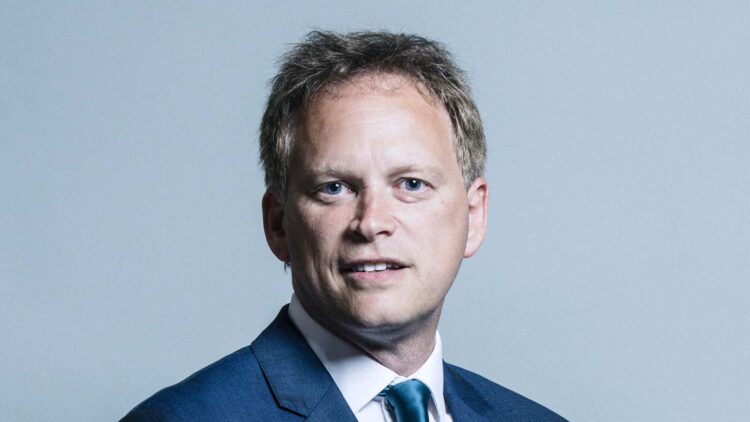By Emily Caulkett-
Thirty-one counties, city regions and unitary authorities have been chosen for funding to level up their local bus services in the latest awards from the government’s bus transformation programme.
Including earlier awards, just under two-thirds of England’s population outside London will benefit from new investment to make their buses more frequent, more reliable, easier to understand and use, cheaper, or greener. Improvements will also include integrated ticketing and more bus lanes to speed up journeys.
The successful areas have been chosen because of their ambition to repeat the success achieved in London – which drove up bus usage and made the bus a natural choice for everyone, not just those without cars.
As the government stated in last year’s national bus strategy, Bus Back Better, areas not showing sufficient ambition, including for improvements to bus priority, would not be funded.
In the meantime, a further £150 million is being provided across England to maintain service levels as patronage continues to recover after the pandemic.
Areas among those set to receive funding today (4 April 2022) to help deliver on their Bus Service Improvement Plans (BSIP) are Portsmouth, Stoke-on-Trent ,Greater Manchester ,West Yorkshire
West Midlands, Liverpool City Region ,North East and North of Tyne Combined Authorities, Reading, Norfolk, Luton, York, and Warrington
As from the 10th of April, most bus fares in the county will be slashed, with short hop fares down by 20%, longer journeys costing up to 40% less and some bus passes cut by almost 50%.
Passes for unlimited bus travel across Cornwall will cost just £5 per day (down from £9 now) or £20 per week. Town zones offer great value travel for just £2.50 per day or £10 for a week. For commuters travelling 5 days a week, that works out at just £2 a day or £1 per journey.
A number of applicants missed out, of the funding, such as Blackpool, Cheshire West and Chester, Hull, Leicester, Plymouth, Sheffield City Region, and Slough.
A spokesperson for The Department Of Transport told The Eye Of Media.Com that applicants who missed out of the funding ”had not demonstrated the required ambition to obtain the funding’..
He added that there are no future plans to invite further application for the funding.
Transport Secretary Grant Shapps
The DfT said just under two-thirds of England’s population outside London will “benefit from new investment” in buses, including earlier funding awards.
Improvements under the areas’ bus service improvement plans include making services more frequent, better reliability, cheaper fares and greener vehicles.
Areas have been chosen because of their “ambition to repeat the success achieved in London”, the DfT added.
In Cornwall, a trial starting on Sunday will see most fares in the county cut.
The DfT said short journeys will be 20% cheaper, with tickets for longer trips reduced by as much as 40%.
Transport Secretary Grant Shapps said:
”The funding I’ve announced today will ensure millions of us can continue to use vital public transport services and brings the total we’ve provided to the sector to keep services running throughout the pandemic to over £2 billion.
Not only that – as we look ahead and continue our work to overhaul services and build back better from the pandemic, this funding will also help authorities and operators work together to provide even better services for people right across the country.
Today’s funding follows the announcement last week of £200 million for almost 1,000 new electric or hydrogen buses, bringing the total funded in England under this government to 2,000.
A further 600 green buses have been funded in Scotland, Wales and Northern Ireland from the block grant to the devolved administrations, putting the UK on target to meet its commitment of 4,000 zero-emission buses.
The government is today also confirming £5.7 billion in funding to level up local bus, tram, rail, walking and cycling networks in England’s 8 city regions.
The CRSTS, first announced in the autumn statement, give the mayors of our largest cities long-term certainty to plan and deliver transformational improvements to their local transport systems.
The money will help deliver, among other things, a new mass transit network in West Yorkshire, improvements to rail services in the Tees Valley, a flat fare on buses in Greater Manchester and bus rapid transit corridors in the West Midlands. Letters have been sent to the metro mayors outlining the funding.
Today’s announcements, along with the funding of zero-emission buses and the bus elements of the increased CRSTS, form part of the £3 billion for bus transformation announced in 2020. Around £2 billion has also been paid to support bus and light rail services during the pandemic.
A spokesman for the Confederation of Passenger Transport, which represents the bus and coach industry, described the funding announcement as “an important milestone”.
He said: “Operators are ready to engage with successful local authorities to deliver their joint plans for improvement in bus services as quickly as possible to help deliver important goals such as the drive to net zero and economic growth across the country.
“It is important that we remember though that there will be millions of passengers left disappointed by today’s announcement as their local area missed out on funding.
“It’s vital that the Government now clearly sets out future funding plans and policy initiatives for delivering its National Bus Strategy, including measures to reduce car use.
“This will ensure that today’s announcement is the beginning not the end of plans to improve bus services across the country.
“A good place to start would be to confirm funding for the industry’s plan to deliver simpler and price-capped ticketing across the country – a move that would improve bus services for passengers everywhere”

